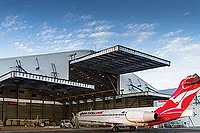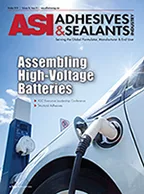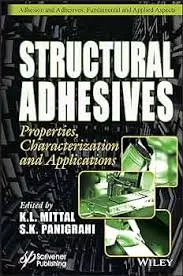Flying High

PRC seal caps are small caps molded from liquid PRC sealant that cures to form a flexible rubber shell. The cured caps are subsequently filled with more sealant and then immediately frozen to prevent additional curing. Thawed seal caps are applied over fasteners for the final cure.
One of the most critical areas for aerospace sealants is integral fuel tanks, where fasteners must be protected from severe chemical and atmospheric environments, says Bill Keller, PPG global segment manager for aerospace sealants. PPG had originally developed the innovative seal caps for Bombardier Aerospace to enhance quality and uniformity while reducing labor time and waste on the Q400. With the success at Bombardier, PPG's seal cap team began working with other customers.
"Our customers at Lockheed Martin liked the concept but needed custom-designed caps," Keller says. The PPG Aerospace Application Support Center (ASC) in Mississauga, Ontario, created prototypes for three new shapes, which were sent to the PPG Aerospace ASC in Dallas. They were then filled with wet sealant, frozen and delivered to Lockheed Martin's Fort Worth, TX, facility.
Testing Confirms Value
Lockheed Martin ran tests to uncover any problems with seal cap application and durability. The quality of seal caps applied by inexperienced fitters was compared with that of conventional wet-sealed fasteners using a puffer box, which simulates an actual fuel-tank environment. The puffer box was subjected to jet fuel, vapor, pressure testing with and without jet fuel, and vacuum testing."Lockheed Martin found more consistent results and easier ability for inspection with seal caps," Keller says. The testing showed that conventional sealing with a pneumatic caulking gun required more worker experience to achieve consistent results. Inspection was more difficult as well, with a sealant void detected in one case.
"The testing subjected the seal caps to extremes. Pressure was sevenfold higher than what it would be in actual fuel tank performance, and the seal caps did not fail," he says.
With the success of the testing, Lockheed Martin began using three custom-designed PRC seal caps made of PR-2001 epoxy-cured Permapol P-3.1 polythioether fuel tank sealant on F-16 fuselages. There are also plans to extend use of two smaller seal caps to F-16 wing fasteners, with the potential for application on the F-22 as well.
In addition to performance benefits, Lockheed Martin found other advantages to using seal caps.
"Time savings in the shop exceeded predictions, with labor reduced by up to two-thirds," Keller says. "Sealant applicators like them because they find them less strenuous than conventional sealing, and training is minimal to achieve optimum results."
Besides reduced application labor, PRC seal caps ensure consistent product application with less likelihood of application error. "Unlike hand sealing, sealant application with seal caps is repeatable and known, without reliance on artisan skill," Keller notes.<
Precise Amount of Sealant
Seal caps can also provide weight savings, according to John Sands, PPG Aerospace global business platform manager for aerospace sealants."Many decisions to convert to seal caps are based not just on improvements in production efficiency but also on reduced weight," Sands says. "When you use a gun to apply wet sealant to seal fasteners, you get variation from fastener to fastener. With PRC seal caps, the amount of material that goes on every one of those fasteners is precise and identical."
Sands notes that PPG offers both standard seal caps and custom-sized sealant solutions to ensure the right amount of sealant use.
"Customers can select from as many as a dozen standard-size caps, or we will create a custom size specific to their fastener," he says. "The custom cap is contoured to fit over the fastener so that only enough material to cover it is used. It doesn't add unnecessary weight to the aircraft."
Because PRC seal caps are made from the sealant already being used, additional qualification is not needed. "Customers are using the same material that they have been using but in a more efficient delivery system," Keller says.
Sands adds that PRC seal caps have proven their performance and application benefits both in laboratory testing and in use. "With evidence that PRC seal caps have been proven for rigorous fuel tank fastener sealing, we know that they will yield the same benefits for other aerospace fastener sealing as well," he says.
"We are providing a method for sealing fasteners that decreases application time and reliance on artisan skills. The result is less reliance on the application and more on the delivery system."
About PPG Aerospace
PPG Aerospace is the aerospace products and services business of PPG Industries. PPG Aerospace-PRC-DeSoto is a leading global producer and distributor of aerospace coatings, sealants, and packaging and application systems. PPG Aerospace-Transparencies is the world's largest supplier of aircraft windshields, windows and canopies.About PPG Industries
In addition to its aerospace business, Pittsburgh-based PPG Industries is a global supplier of glass, coatings, fiberglass and chemicals, with more than 100 manufacturing facilities and equity affiliates in more than 20 countries. Sales in 2004 totaled $9.5 billion.For more information, contact PPG Aerospace-PRC-DeSoto, 5454 San Fernando Road, PO Box 1800, Glendale, CA 91209; or visit http://www.ppgaerospace.com.
Looking for a reprint of this article?
From high-res PDFs to custom plaques, order your copy today!






